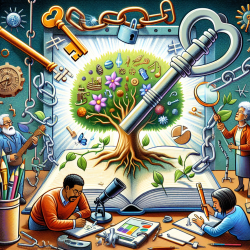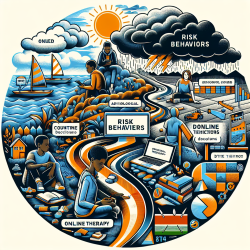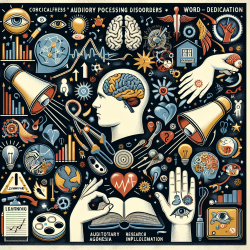Introduction
In the ever-evolving landscape of education, the call for diversifying curricula has become increasingly urgent, especially in fields like ecology, evolution, and the life sciences. The research article titled "Where do I even start? Recommendations for faculty diversifying syllabi in ecology, evolution, and the life sciences" by Perrin-Stowe et al. provides a comprehensive framework for educators aiming to integrate anti-racist and anti-colonial perspectives into their syllabi.
The Framework for Diversifying Syllabi
The research outlines a structured approach to curriculum diversification, emphasizing the importance of creating a sustainable network of educators committed to these goals. This framework not only aligns with standard curriculum objectives but also incorporates critical assessments of traditional views within the fields of life and environmental sciences.
Key Recommendations for Educators
Here are some actionable steps educators can take to begin diversifying their syllabi:
- Highlight Contributions of Minoritized Groups: Integrate works and perspectives from diverse scholars and communities to provide a more inclusive view of the subject matter.
- Explore Multiple Ways of Knowing: Encourage students to engage with different epistemologies, including indigenous and local knowledge systems, alongside conventional scientific approaches.
- Perform Critical Assessments: Challenge foundational views and assumptions in the field by incorporating critical thinking exercises and discussions that address historical and contemporary injustices.
Classroom Dynamics and Success
The success of these initiatives largely depends on the classroom environment. Educators should strive to create an inclusive atmosphere that supports open dialogue and respects diverse viewpoints. This involves being mindful of classroom dynamics and actively working to dismantle barriers that may hinder the participation and success of minoritized students.
Encouraging Further Research and Development
While the framework provides a solid foundation, educators are encouraged to delve deeper into the resources and recommendations provided in the study. Continuous professional development and collaboration with peers can enhance understanding and implementation of these strategies.
Conclusion
Implementing the recommendations from this research can significantly impact the educational experience for all students, fostering a more equitable and inclusive learning environment. By embracing these changes, educators can contribute to the broader movement towards justice and diversity in academia.
To read the original research paper, please follow this link: "Where do I even start?" Recommendations for faculty diversifying syllabi in ecology, evolution, and the life sciences.










